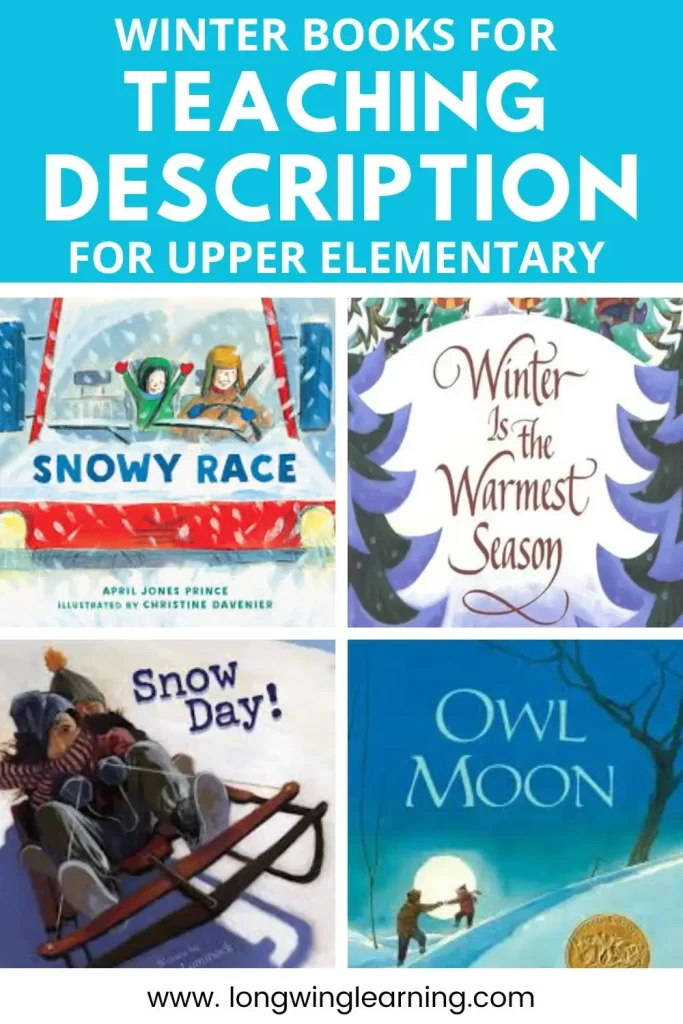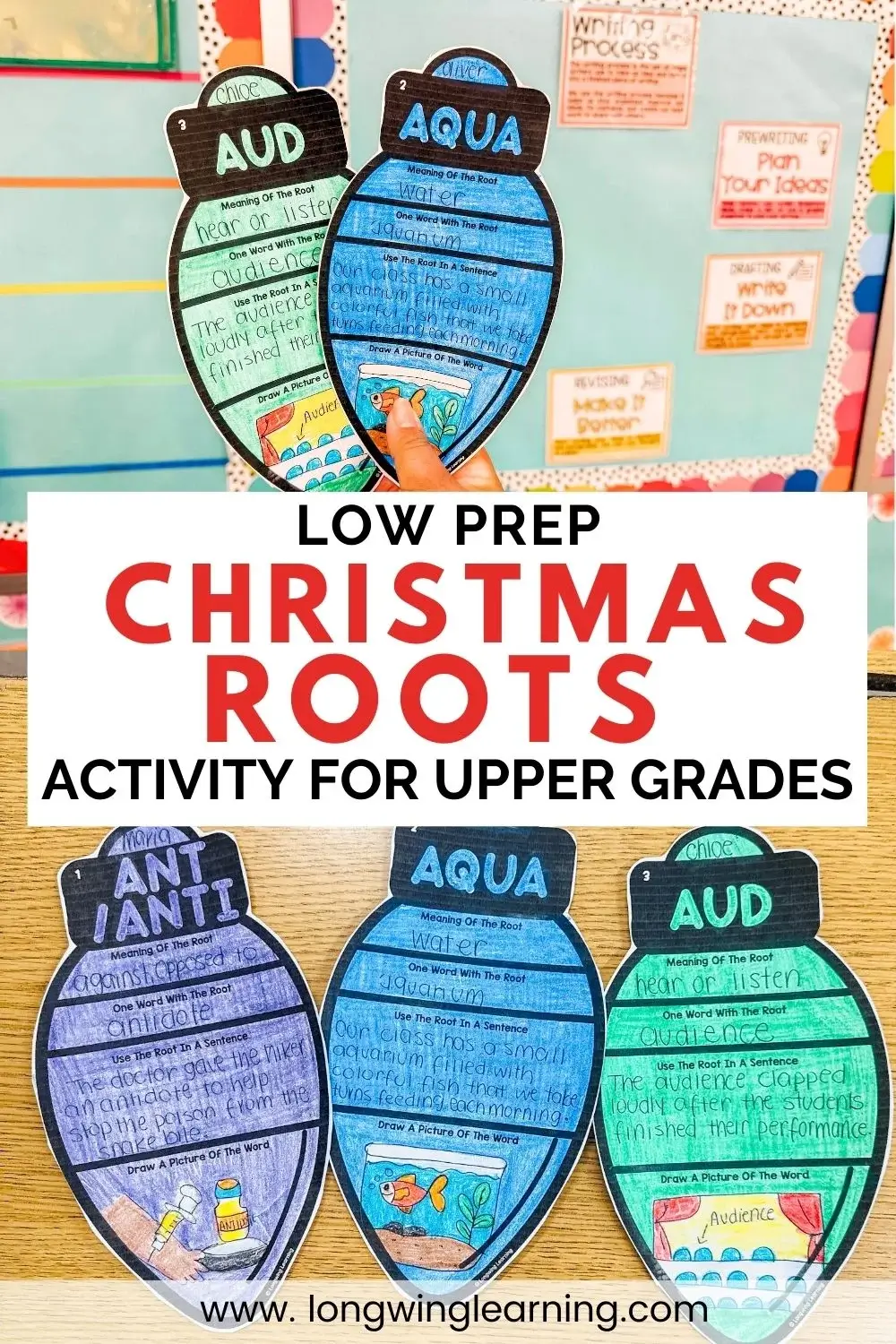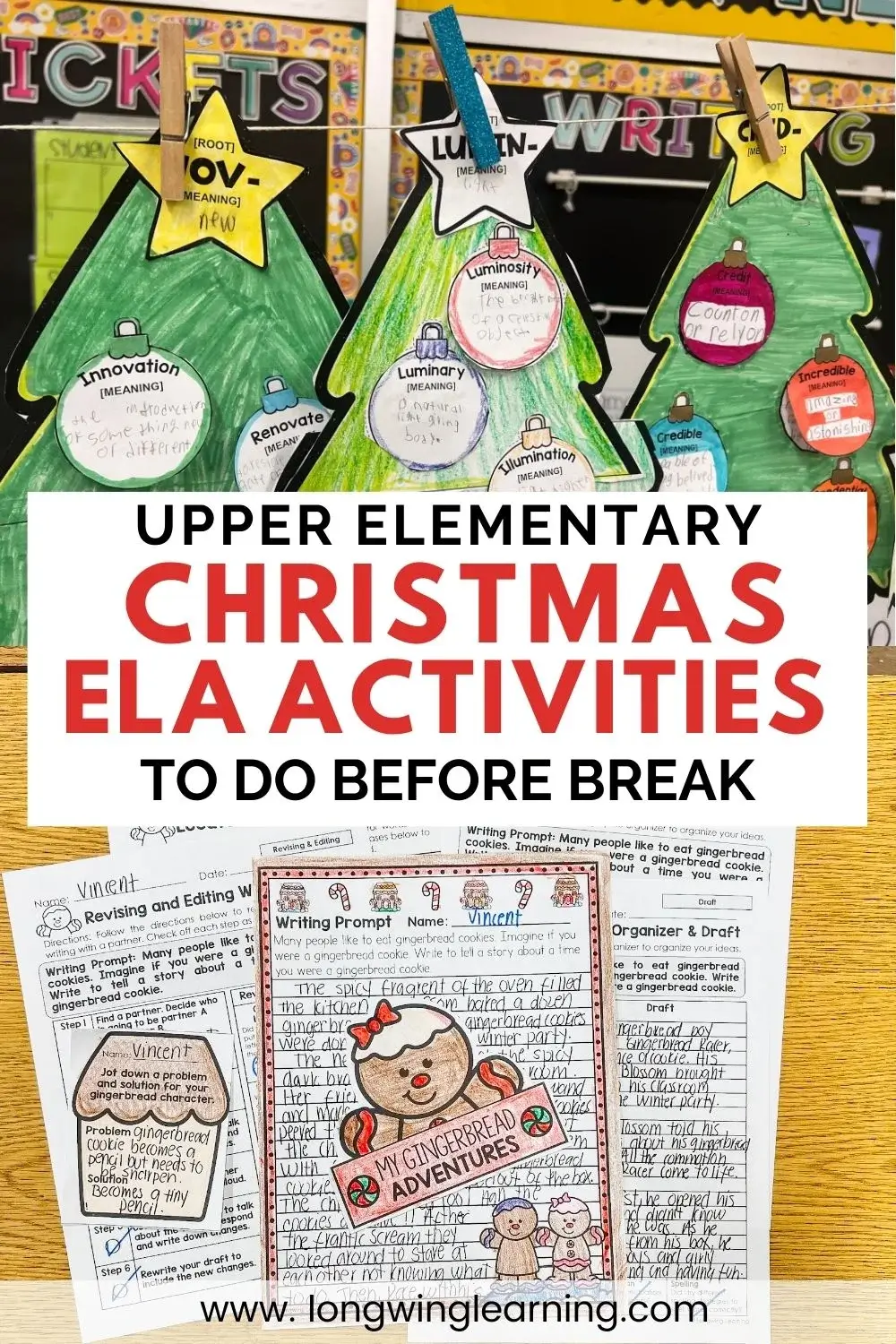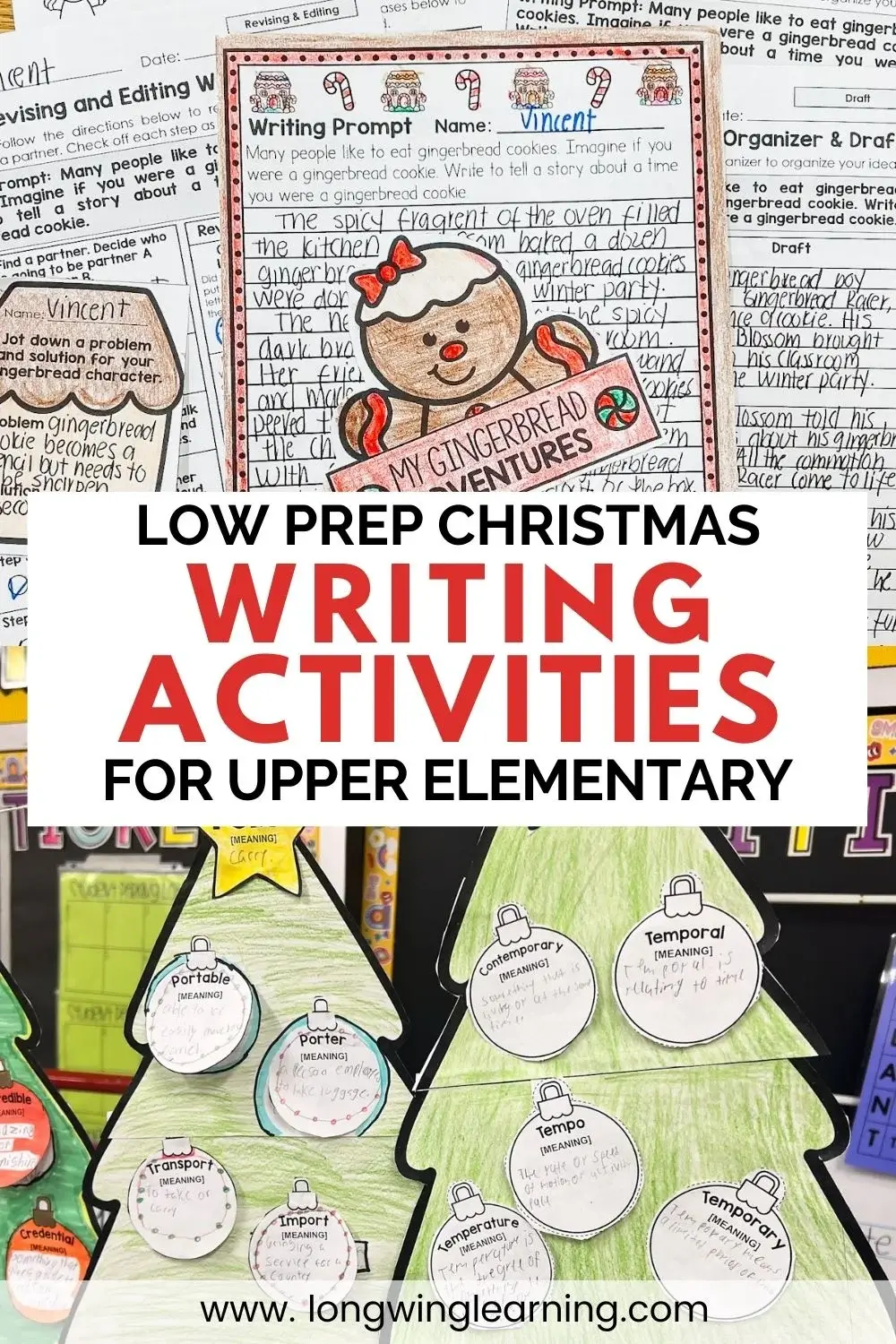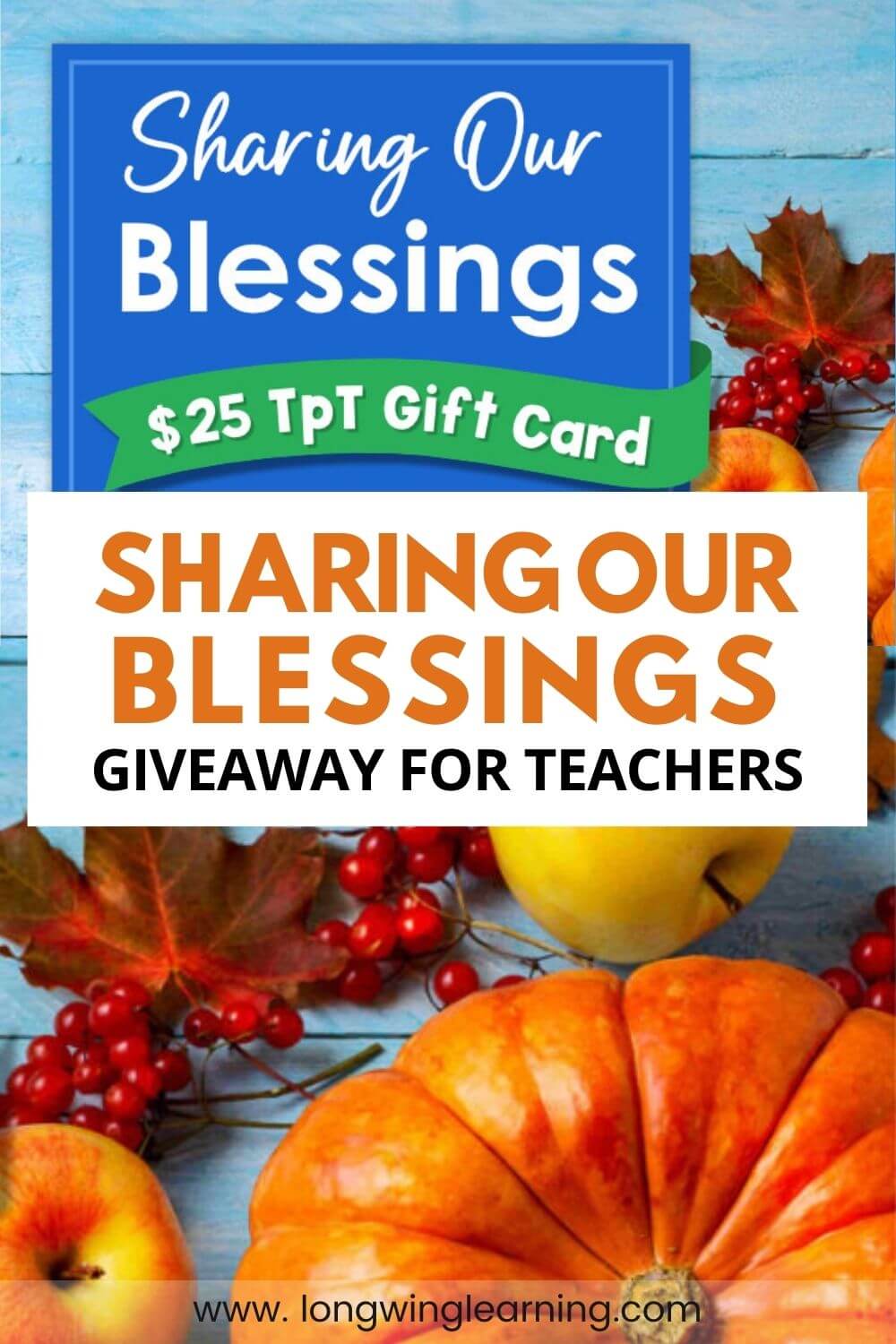Teaching descriptive writing to upper elementary students with winter books is a great way for students to see what good writing looks like and help them start writing their own personal narratives.
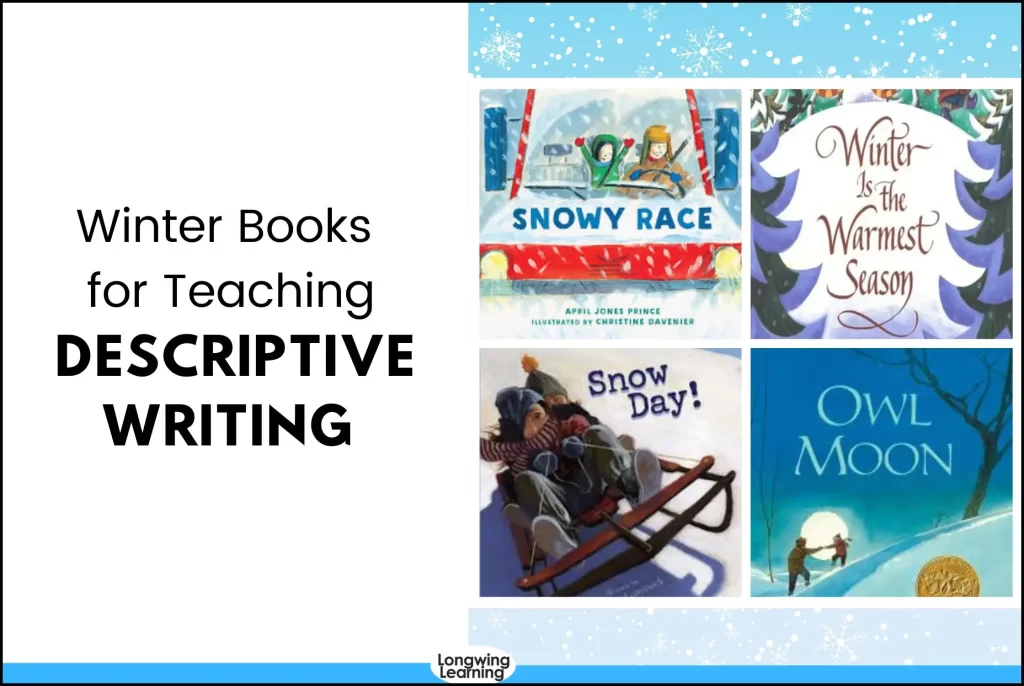
The first few weeks back after winter break are always filled with excitement.
Kids eagerly share stories about their vacations, family traditions, and winter adventures.
Why not turn that excitement into writing inspiration?
One of my favorite ways to teach personal narratives is by using winter books called mentor texts.
These picture books are perfect for helping students focus on small moment writing while practicing descriptive writing.
In this post, I’ll share some of my go-to winter-themed picture books and simple ways to use them to teach descriptive writing lessons in upper elementary.
Table of Contents
Why Winter Books Work for Teaching Descriptive Writing
Using winter books or mentor texts is one of the best ways to teach writing because they show kids what strong writing looks like.
Instead of just telling them how to use descriptive language or structure a story, mentor texts let students see it in action.
Winter-themed books are especially great for this time of year. They help kids tap into their winter memories and connect with the stories in a relatable way.
Plus, these books are full of vivid details that make it easy to model small moment writing.
Winter-Themed Picture Books for Teaching Descriptive Writing
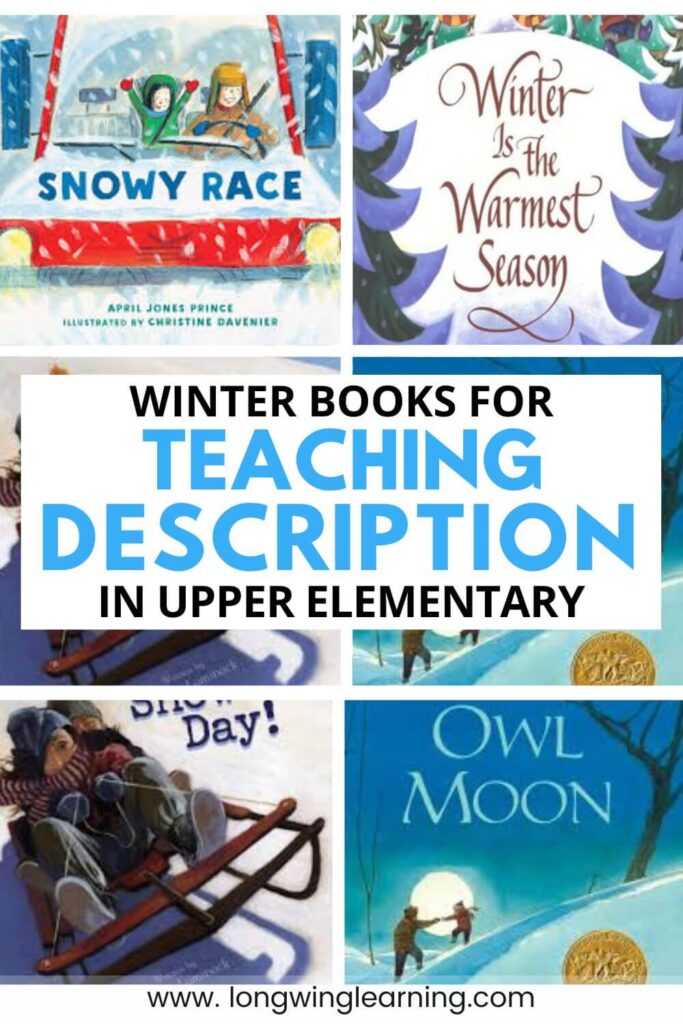
These are my favorite winter mentor texts to kick off a descriptive or personal narrative unit.
Each book offers unique opportunities for students to explore descriptive writing and improve writing personal narratives.
Owl Moon by Jane Yolen
This is a must-have for any writing lesson. The story follows a girl and her father on a snowy night looking for owls.
It’s packed with beautiful, detailed descriptions that transport you into the snowy forest.
I love using this book to teach kids how to zoom in on a small moment and bring it to life with precise words.
Snow Day! by Lester Laminack
This funny story captures the excitement of thinking you’ll have a snow day only to realize you still must go to school.
My favorite part? The dad reveals he’s the teacher who can’t be late!
This book has a clear beginning, middle, and end, which makes it perfect for teaching story structure.
Snowy Race by April Jones Prince
This heartwarming story is about a girl helping her dad clear snow to welcome her mom home.
It’s a quick read and great for kids who might struggle with vocabulary because the focus stays on the storyline.
It’s one of my go-to books for teaching how to write about small moments.
Winter Is Coming by Jim LaMarche
With stunning illustrations and poetic lines, this book follows a girl observing signs of winter in nature.
It reminds me of Owl Moon but with its unique charm.
It’s great for showing kids how descriptive writing can set a mood and bring their stories to life.
Winter Is the Warmest Season by Lauren Stringer
This story flips the idea of winter being cold by focusing on all the things that make it feel warm, like family traditions and cozy moments.
It’s a great way to help kids reflect on their favorite parts of winter and use descriptive words to capture those moments.
How I Use Winter Books in Writing Lessons
Once I’ve chosen a book or a mentor text, I use it to guide my students through the writing process.
Here’s how I break it down:
Reading Like Writers
After reading the story, we discuss the “writing moves” the author made to make it engaging.
For example, in Owl Moon, we might notice how the author used strong verbs or sensory details to describe the snowy forest.
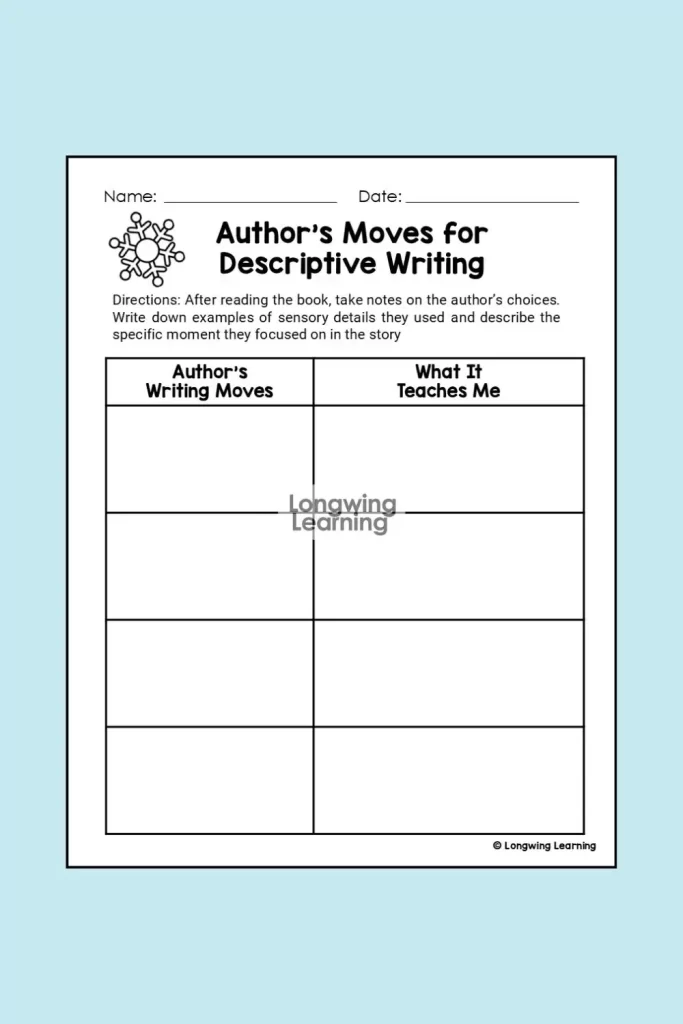
Brainstorming Ideas
Next, we use a simple T-chart to brainstorm winter memories inspired by the book. This helps students think of their small moments to write about.
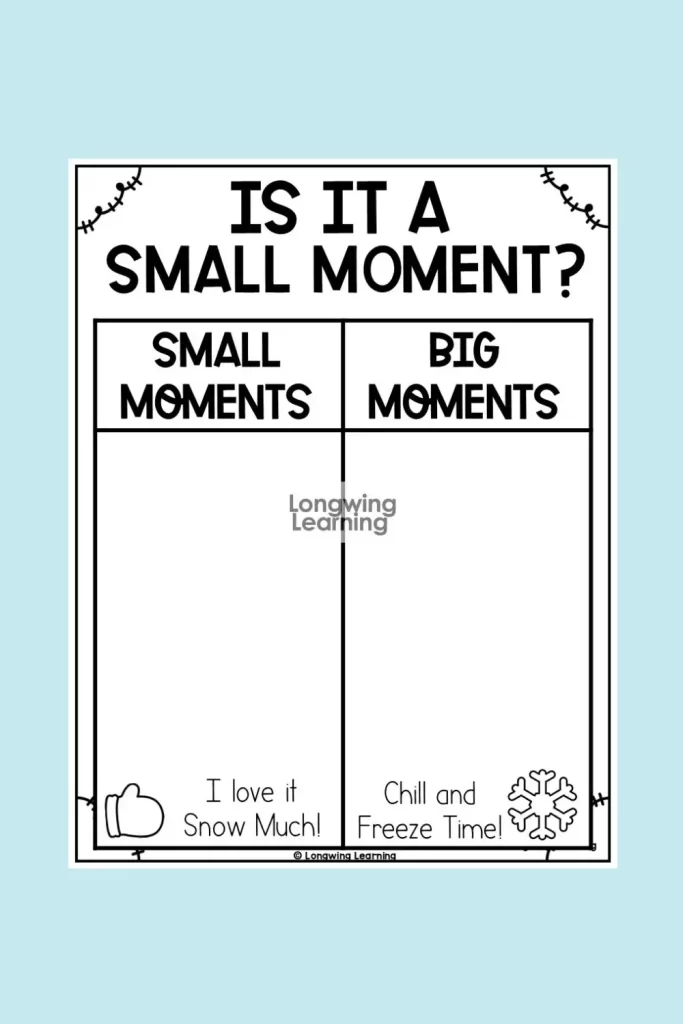
Planning with Graphic Organizers
After choosing a small moment, students use a graphic organizer to plan their story. This keeps them focused and organized as they draft their narrative.
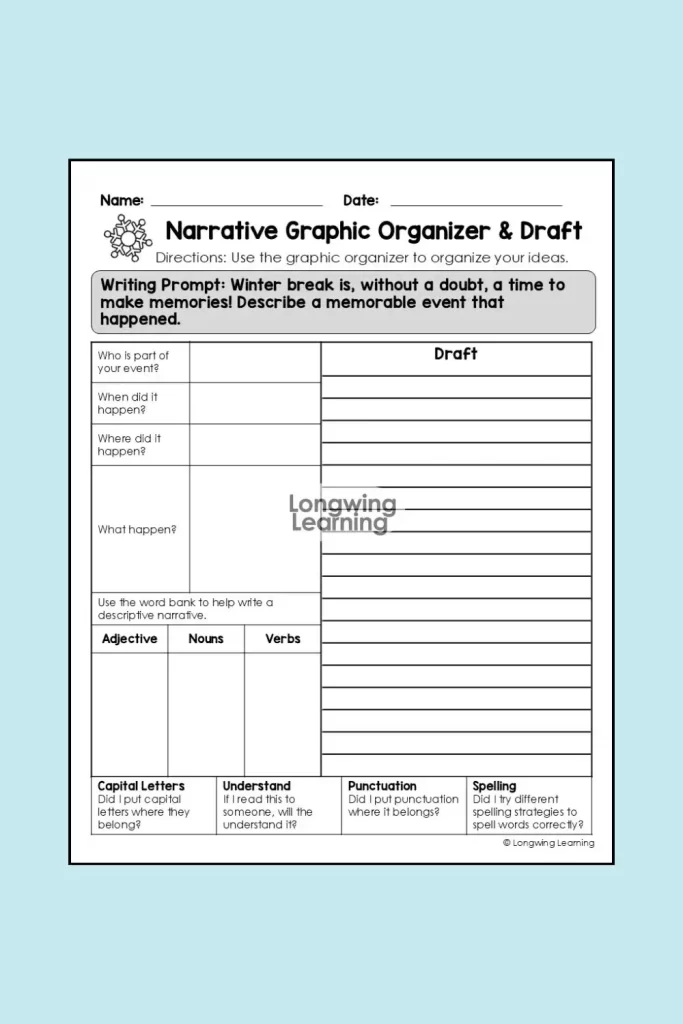
Drafting and Publishing
Finally, students write their stories. To make it fun, I let them use colorful pens for their final drafts or type them up and add pictures if we use computers.
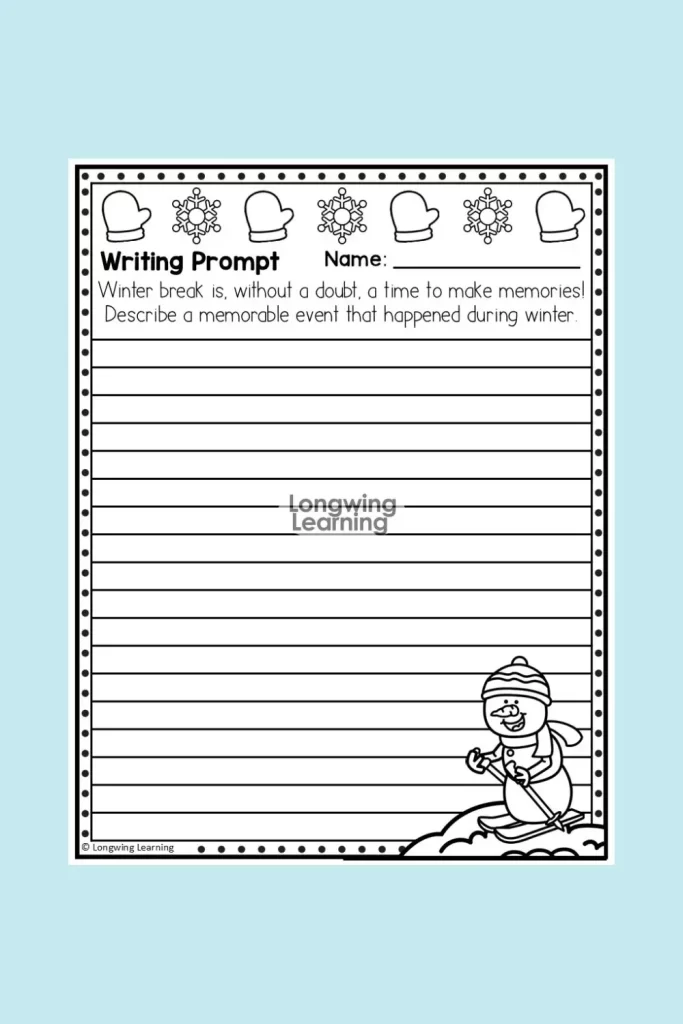
Making Writing Fun and Meaningful
Winter is such a special time of year, and these winter mentor texts make it easy to introduce personal narrative writing to your students.
These stories capture the beauty, humor, and heart of small moments, helping students see how their experiences can turn into compelling narratives.
Whether it’s the poetic imagery of Owl Moon or the relatable humor in Snow Day!, these books provide endless inspiration.
Are You Planning on Teaching Descriptive Writing?
Check out my Winter Memories Writing Activity on TPT! It’s a perfect addition to teaching descriptive writing after the holiday break.
Click here to view it now in my TPT store!
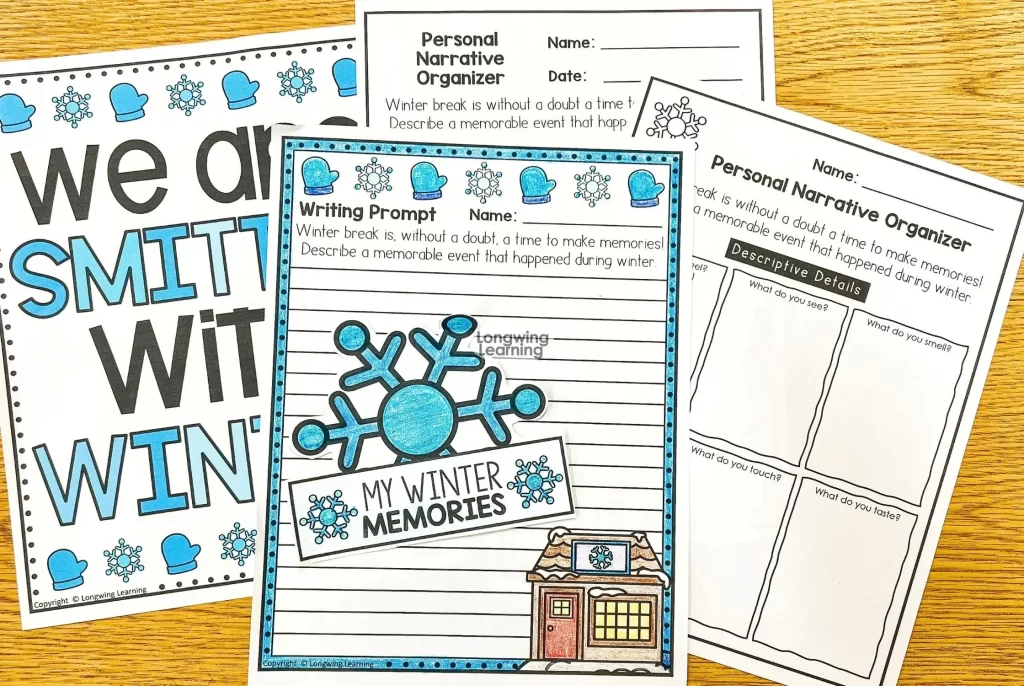
Save This Idea for Later!
Save this post to your Pinterest board to have these ideas ready for your next writing lesson!
